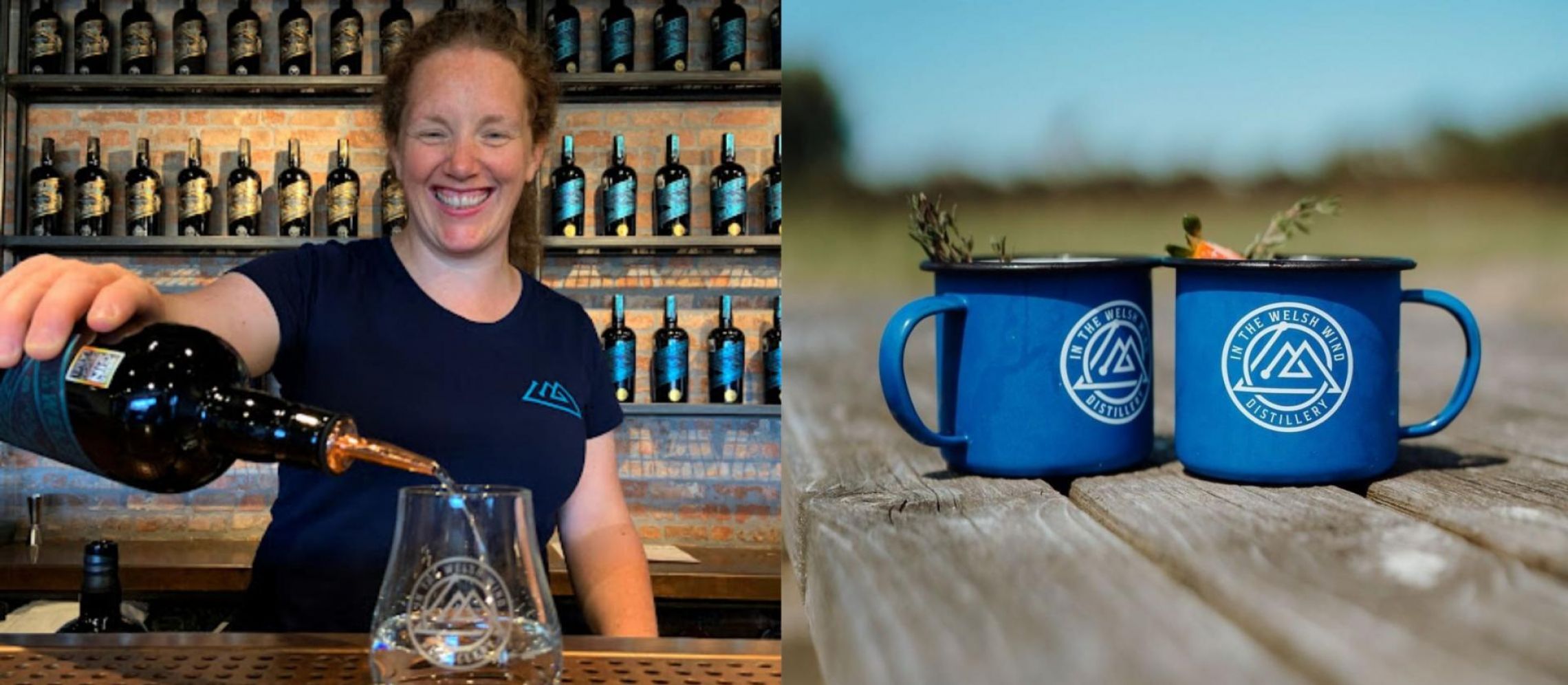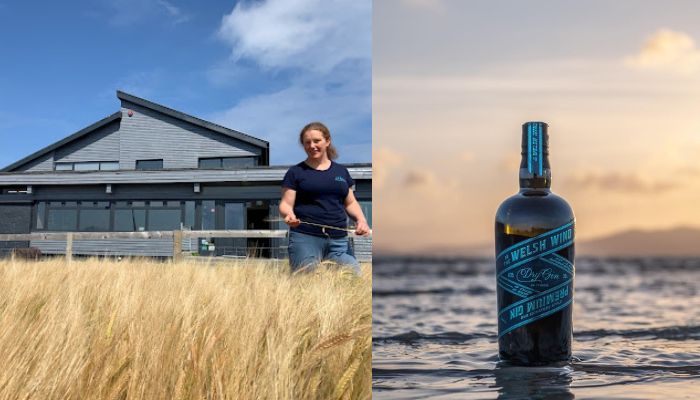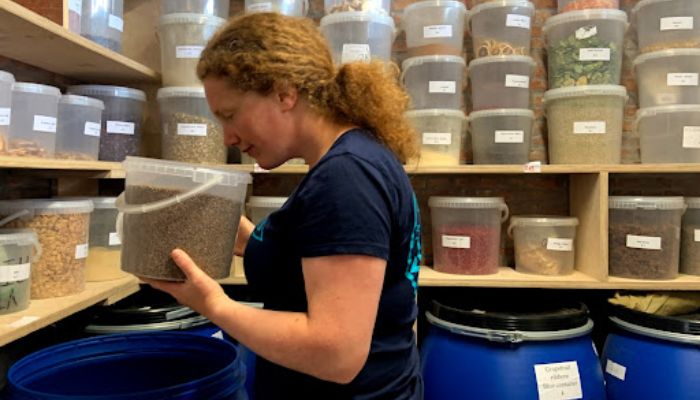Submission Deadline
28 February 2026
Judging
Date
24 & 25 March 2026
Winners Announcement
22 April 2026
28 February 2026
24 & 25 March 2026
22 April 2026

Graduating with an MSc in Biology, Roseanne has worked in the environmental charity sector for six years. She was fortunate to be hired as the Visitor Center Manager at Glen Scotia Distillery. She learned the complexities and intricacies of making perfect malt whisky there. She wished to become more involved in whisky production and learn more about the science involved. Soon after, she applied for the position of a distiller at the Welsh Wind Distillery in West Wales and got appointed.
Roseanne is a part of the Welsh Origin Whisky Project, which entails growing its own barley and rye with local farmers, steeping, malting, brewing, distilling, and casking in-house. She has also learned about all the processes involved in whisky production and is involved in developing rum, vodka, and gin product. She is currently enrolled in the Institute of Brewing and Distilling's Diploma in Distilling, sponsored by the Worshipful Company of Distillers.
I studied ecology at University in Ireland, graduating with an MSc in Biology, and worked in the environmental charity sector for six years. In 2019 my husband and I got an opportunity to live and work in Campbeltown, Scotland. Campbeltown is steeped in whisky history, and I was lucky enough to become the Visitor Centre Manager at Glen Scotia Distillery. I learned the complexity and intricacies of creating perfect malt whisky here. At Glen Scotia, I learned a lot from the Distillery Manager, Iain Mc Allister. His enthusiasm for whisky is infectious. I wanted to get more involved in whisky production and learn more about its science. A position for a Distiller became available at In the Welsh Wind Distillery in West Wales. I applied and was successful in getting the role.
What mainly brought me to In the Welsh Wind Distillery was the Welsh Origin Whisky Project. This project involves us growing our own barley and rye with local farmers, steeping, malting, brewing, distilling, and casking in-house. The project is incredibly exciting, and I have learned so much about all the processes involved in whisky production. I am also involved in the product development of rums, vodkas, and gins. My current role is dynamic and exciting, no two days are the same, and new projects are always keeping us busy. I am also currently working on my Diploma in Distilling with the Institute of Brewing and Distilling, which has been sponsored by the Worshipful Company of Distillers.
The spirits industry is evolving very quickly. Customers are looking for more from their spirits and expect higher quality products that tell a story. This has been great for smaller craft distilleries, like In the Welsh Wind, which can offer customers more connection to the products they bring to market. In turn, as a distiller, this gives me more opportunities to innovate, create new recipes, and get involved with an array of different projects.

Image: Roseanne Powell
I seldom have typical day-to-day. When I arrive at work, I say hi to my colleagues and catch up with the distilling team to see what is on the agenda for the day/week, and we divide the workload amongst ourselves. There will usually be a gin to prepare for distillation and work on the Welsh Origin Whisky Project.
If I’m carrying out a gin distillation, I’ll ensure the still is cleaned, weigh out the botanicals, and then charge the still with NGS. We allow our botanicals to macerate overnight and distill the next day.
The work required for the Welsh Origin Whisky Project will depend on the production stage we are in. If we’re steeping, I’ll be involved with my distiller colleagues, adding grain to the steeping tank, filling the tank with water, and aerating it throughout the day over a three-day wet/dry cycle. If a batch of grain has finished steeping, 2 of us will empty the grain onto the malting floor and keep the grain turned using hand tools to ensure an even malt. We mash in directly on green malt as we prefer the flavor profile of a green malt mash. We mince the grain and add it to the still at strike temperature to convert the starch, then cool down the fermentation temperature and pitch the yeast. We ferment and distill in the same vessel, reducing our need for additional processing equipment. We check gravity regularly during fermentation before distillation which takes around 20hrs to run through heads, hearts, and tails. After the distillation, we empty and sterilize the still before the next mash-in.

Image: Roseanne Powell
As one of the distillers, I tend to have less direct dealings with bartenders than the sales team, so I haven’t perfected my elevator pitch yet. Suppose I do have the opportunity to talk to someone who hasn’t heard of our spirits before. In that case, I usually take a more nuanced approach, talking about the quality of what we do at the distillery, the attention to detail when we’re developing a spirit, and the feedback we get from customers.
We’re a relatively new business and are still growing our strategies, but we offer advice on service and have started to develop a range of Point of Sale items that can help with depletion. Our Sales team is also very active, directly engaging with bartenders and landlords, not just wholesalers.
As a distillery, we offer advice and support to our customers on service for all our products, including mixers and garnishes, which will work well with our different spirits. We can also provide cocktail recipes that will show off our spirits to their best advantage while drawing customers in. We often bring hospitality teams into the distillery to show them how we make spirits, run tastings, and offer the opportunity for them to make their own bottle of gin in our customer-facing ‘Gin Lab’ so that they gain a deeper understanding of the distillation process themselves and can talk more knowledgeably about spirits to their own customers.
In a small team like ours, everyone is part of the marketing and sales effort. My main contribution is in the development and distillation of excellent quality spirits. Many of the gins we produce are award-winning at the highest level, which is great for marketing and PR. It gives the spirits we produce kudos to have that external validation, which is attractive to buyers, both trade and wholesale, and individual consumers.
A good distiller should have a good understanding of the distillation process, i.e., what is happening and why. Expert knowledge of how the distilling equipment works and how to operate it 100% correctly is imperative for safety and to maintain consistent results. In craft distilleries, a good-tasting pallet is also an advantage as spirits are made in small batches, and batch consistency is important.
[[relatedPurchasesItems-39]]
Currently, my go-to drink is In the Welsh Wind Signature Style gin with a slimline tonic and cucumber. It’s a refreshing and flavourful drink, which goes down well on a warm summer's evening, especially when having a bar-b-que.
Every weekend my husband and I go for long hikes. We get an ordinance survey map out on Friday night and pick out one of Wales’s many walking routes through the countryside or along the coast. This is one of the things we love about Wale, how easy it is to go for long hikes in the countryside. I also play Touch Rugby with my local women’s team, Cranogwen RFC. It is a fun, non-contact version of rugby and is great for players of all skill levels to play rugby together.
I think it is important to be in a job you love doing (as we spend most of our time there), but it is important to have time off and enjoy life outside work. Being able to leave work at work is very important for the people around you. Being close to people who support and care for you is also important as making time to enjoy life together. I also believe in just letting life happen and going wherever it takes you.
Header Image: Roseanne Powell
Show your spirits where it matters. Get your products tasted by top bartenders, buyers and experts at the London Competitions — enter now.